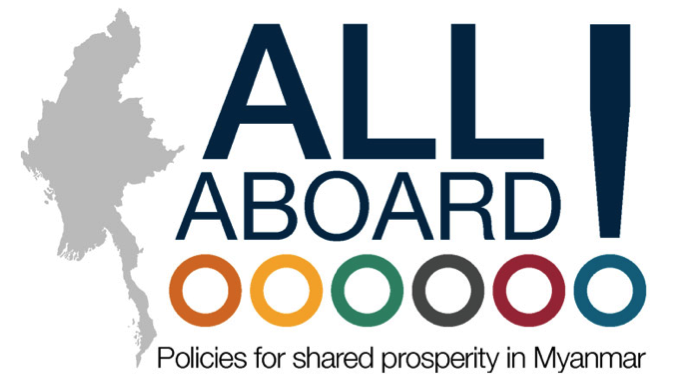Can agriculture push Myanmar towards prosperity?



A report in Britain’s Guardian newspaper describes agriculture as one of the country’s best shots at tackling poverty and stimulating economic growth
According to a multi dimensional review of the country agri-food and agriculture are key areas of investment for Myanmar’s government, but unlocking their potential requires legal reform, better financing and training in modern farming methods.
The review, undertaken in the last three years by the OECD Development Centre (an international organization helping governments tackle the economic, social and governance challenges of a globalized economy) and multiple stakeholders in Myanmar found that transforming to a modern economy would require “upgrades” in agriculture, manufacturing and services, with agriculture a particular sweet-spot for future investment. However, succeeding means switching from an agrarian base reliant on small-scale agriculture at present towards a broad range of modern activities.
Commenting on the review in the Guardian newspaper OECD policy analysts Deirdre May Culley and Martha Baxter describe how “economic progress will be indispensable if the country is to overcome years of ethnic armed conflict and move towards a common future.”
Myanmar is one of the poorest countries in South-East Asia. It is rich in natural resources like oil, gas, hydropower, precious stones, fresh water and fertile land and spans several climate zones which mean it can support a range of crops (rice and tea are two of the biggest.) Yet although natural extraction of these resources would be “fiscally tempting,” the review identified agriculture and agri-food as investment areas that would give the government most for its money.

 Myanmar isn’t making the most of its agricultural assets, say Culley and Baxter. Farming is the backbone of the country employing over 70% of the population, including many of Myanmar’s poorest people. Yet farmers use antiquated practices, sowing tiny plots by hand (55% are less than 4.9 acres) and producing raw products that are seldom transformed or fit for export.
Myanmar isn’t making the most of its agricultural assets, say Culley and Baxter. Farming is the backbone of the country employing over 70% of the population, including many of Myanmar’s poorest people. Yet farmers use antiquated practices, sowing tiny plots by hand (55% are less than 4.9 acres) and producing raw products that are seldom transformed or fit for export.
In a snapshot of Myanmar’s unexploited agricultural potential, co-author of the multi-dimensional review and a visiting fellow at Yangon University, Linda Fulponi tells The Guardian how food exports miss the mark.
“What food exports there are tend to be raw products rather than processed goods, which are far less valuable, with some excluded entirely from international markets as they don’t meet food safety and quality requirements.”
Technical know-how in modern production methods is another stumbling block with farmers struggling to improve productivity (only 0.5% of eligible students are enrolled in technical training methods against more than 40% in China.
Perhaps more crucially, it is the government and not farmers who decide which crops to grow, with a lack of local information and training compounding the problem.
Culley and Baxter point to four key challenges for Myanmar to overcome if it is to maximize its agricultural sector and become a modern agri-food hub, exporting products in the region and around the world. The first is legal reform giving farmers secure rights to their land and allowing them to decide which crops to grow.
Next, a more favorable business environment with access to finance for entrepreneurs and farmers that “weans them off public subsidies and allows commercial banks to operate in the sector.” Third, investment in infrastructure, including building “food safety inspection laboratories, cold storage facilities at airports and ports, and better transport networks.”
Lastly, ramping up agricultural productivity in the long term will depend largely on equipping Myanmar’s farmers with the right information and training.
It’s in this the context that two training workshops in Myanmar’s Yangon and Yezin Universities are currently underway (25-29 April 2016). Organized by the Food and Agricultural Organization (FAO of the United Nations) in conjunction with WorldFish and Research4Life the main focus of the workshops is to train agricultural experts in two online research tools: Access to Global Online Research in Agriculture (AGORA) and the International System for Agricultural Science and Technology (AGRIS), both giving researchers in low-income countries free or low cost access to a wealth of scientific research and information on agriculture.
Sources: The Guardian

